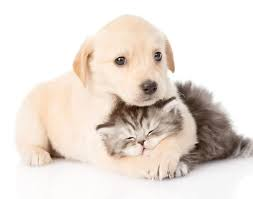Dr. Don DeForge-Silver Sands Veterinary-Obesity in Our Pets
Dr. Don DeForge- Silver Sands Veterinary Center
Obesity In Our Pets
Are We Killing Our Pets with Love?
Are we killing our pets with love? A recent study shows that 52.6% of our nations 83.3 million dogs are overweight or obese and 57.6% of our 95.6 million cats suffer from the same problem.
Dr. Ernie Ward, founder of the Association for Pet Obesity Prevention [APOP] states, "the pet industry is mighty and well-meaning, but it is time we stop accepting the status quo. We must start working together to fight obesity through knowledge and action."
The list below is a summary of the most common dog and cat obesity-related conditions:
- Diabetes
- Heart and Lung Disease
- Liver and Kidney Disease
- Osteoarthritis
- Slipped discs
- Knee injury including ACL-Cruciate rupture
- Hypertension-High Blood Pressure
- Gall Bladder Problems
- Soft Tissue injury
- Bladder and Urinary Tract Infections
If someone told you that you could increase your pet's life through following some basic nutritional concepts, it is a "no-brainer" you would sign on to the program immediately.
What most pet owners fail to realize is that the pet does not make food choice decisions but the pet owner-advocate is the reason for the pet's obesity. Obesity is completely avoidable.
If your pet is "putting on the pounds" call your Local Doctor of Veterinary Medicine and ask for a weight control consultation. Do not buy into the Internet, non-professional, starvation diets. These diets are very risky to your pet's health. Fatal complications can occur especially in cats on these diets.
Almost all veterinary schools have a Board Certified Veterinary Nutritionist on staff.[Diplomate of the American College of Veterinary Nutrition] Most will give phone consults and help you with weight reduction.
- American College of Veterinary Nutrition Diplomates can assist practitioners with nutrition-related services and provide referral services.
- Referral services that board-certified veterinary nutritionists can provide include detailed diet evaluation, commercial diet counseling, weight loss program creation, guidance on nutritional management monitoring and adjustment, feeding tube placement and diet, parenteral nutrition, homemade diet formulation, and supplementation regimen review.
- For a list of ACVN diplomates, visit the ACVN Web site.
All patients before beginning dieting must have a thorough physical exam and laboratory work-up by the family local veterinarian to rule out medical problems that could be contributing to the overweight or obese state. I cannot accentuate how important the pre-dieting physical exam and laboratory testing is to each patient. After this is completed, the data can be incorporated into a referral package to the Diplomate of the American College of Veterinary Nutrition being contacted by your LDVM.
For the good of the pet that you love, please make a commitment today to find out why your pet is overweight or obese and get the answers from your veterinarian on how to reverse the problem. You have been given the information to initiate an action plan of love. No one can help your pet except yourself.

Don DeForge, VMD
Silver Sands Veterinary Center
17 Seemans Lane
Milford, CT 06460
www.SilverSandsVeterinary.com
1-800-838-3368
DoctorDeForge@yahoo.com
Dr. DeForge welcomes comments concerning his blogs. E-Mail him today at DoctorDeForge@yahoo.com
14Augut2015


Comments
Post a Comment